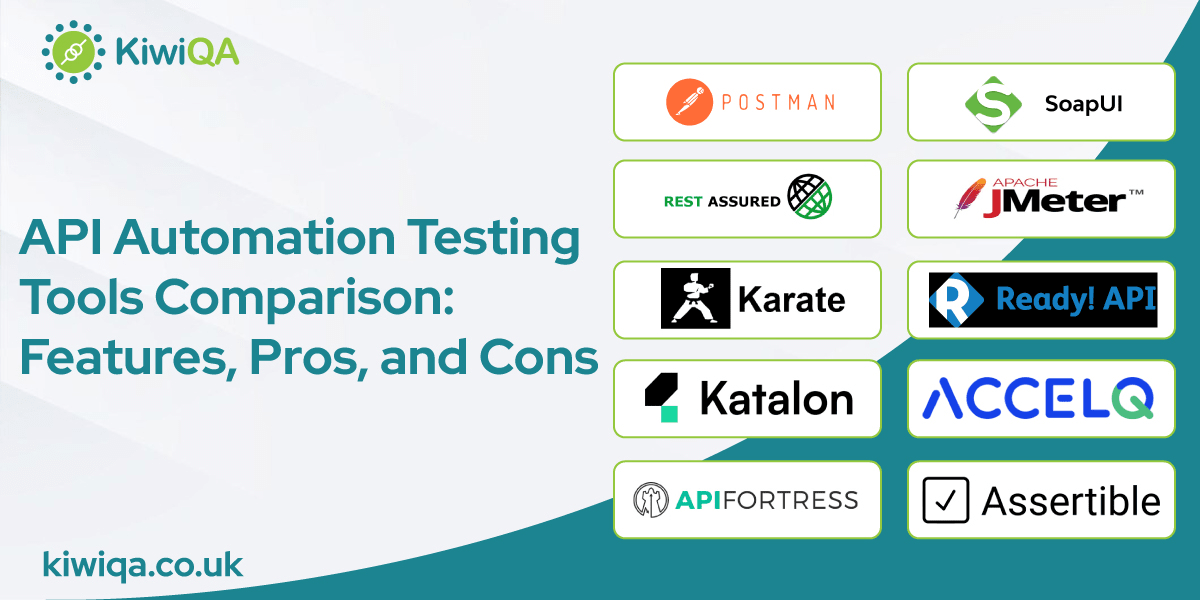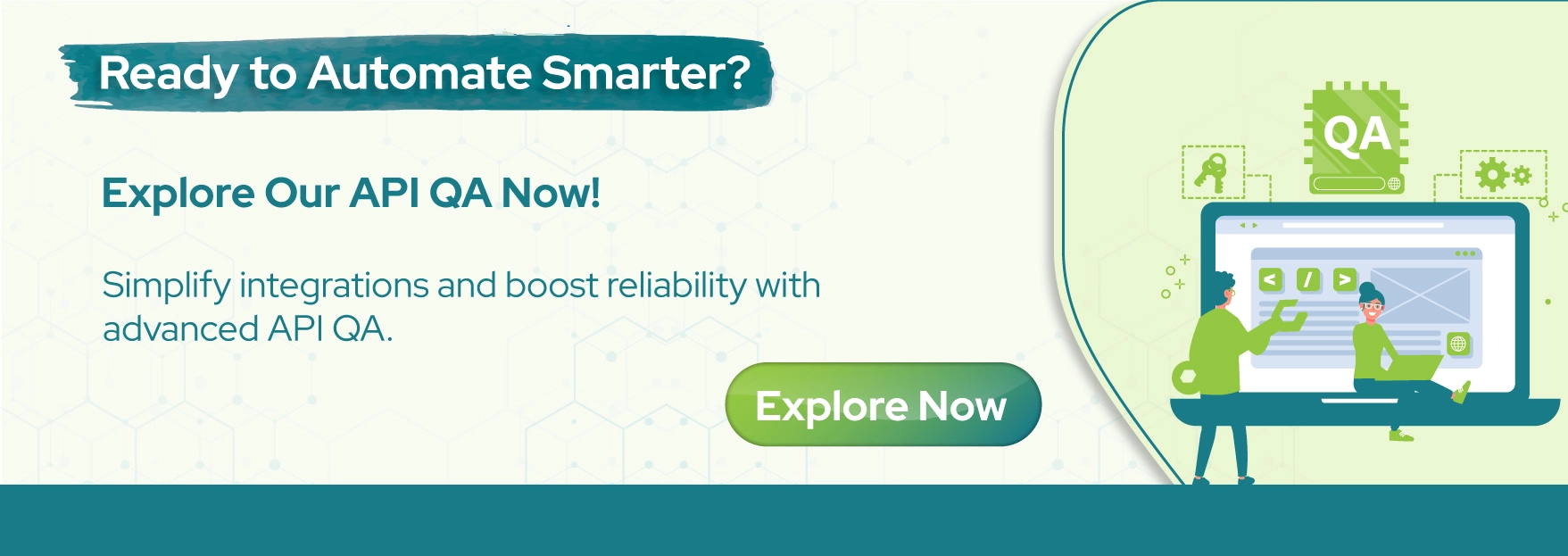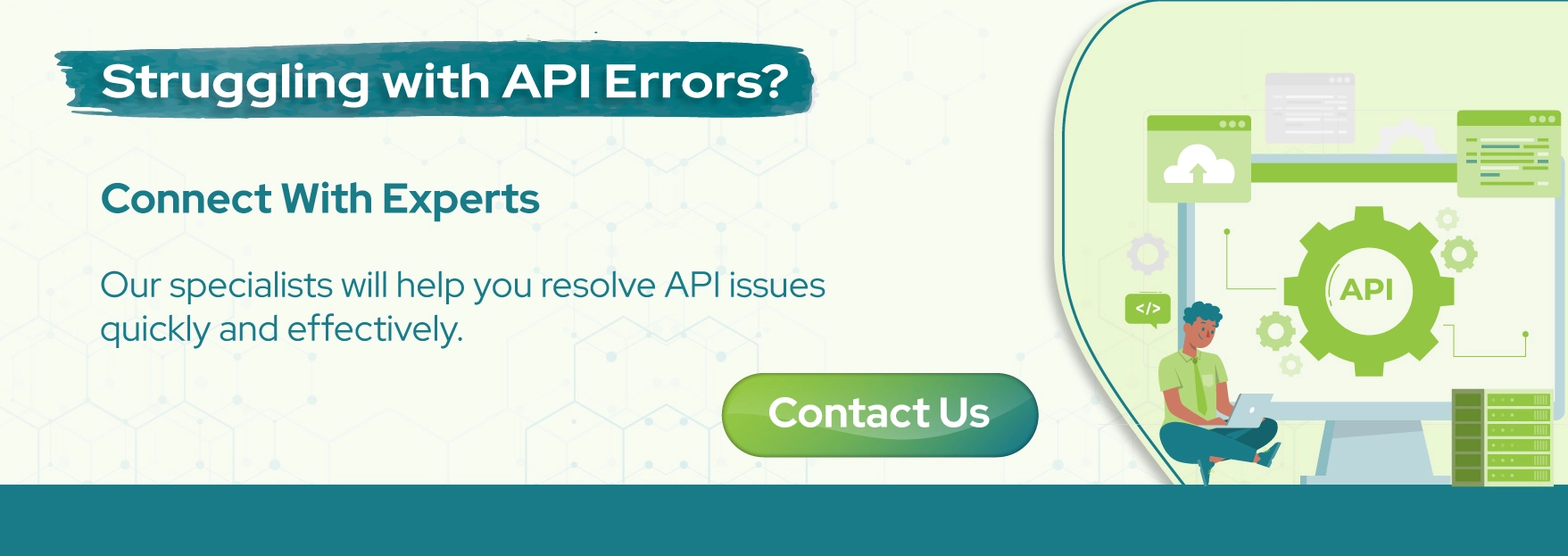APIs are necessary for the mobile applications we rely on today. To verify the smooth operation of the application, it’s necessary to automate the testing. Automation testing verifies APIs’ functionality, security & performance under different conditions. Test automation tools are necessary for advanced software development.
In 2025, test automation becomes more crucial because of increasing complexity & market demands. You’ll be surprised to know that 26% of businesses of businesses have trouble selecting the right API automation testing tools. Only 12% of QA teams use automation in 75% of their projects.
No matter if you own a startup or an established business, the choice of testing tool decides the results. The wrong automation tool can minimize the testing speed. In the following blog post, we have mentioned the tools for automation testing services 2025 along with their pros & cons. We’ll also share a few best practices to make the right choice.
Understanding API Automation Testing
✧ What is API Testing?
API testing is the practice of testing an application programming interface to verify its functionality, security, reliability & performance. API testing enables the software team to enhance APIs without introducing any loopholes & hampering functionalities. The process of code upgrading becomes easier when API verification can be done earlier. API testing is automated by using the testing tool to execute API tests within a specific time.
API test automation tools use specialized tools for performing tests on APIs without involving humans. Automation tests are more effective than manual testing. It can smartly execute a bulk of complicated test cases throughout the development steps. It significantly limits the time & cost of the QA team. This approach helps to test the core functionalities of the app and ensure that various components interact as expected.
✧ Why Automate API Testing?
Faster feedback cycles- API automation facilitates tests to run frequently and in various environment scenarios. It increases the frequency of offering a continuous cycle of feedback on APIs’ health. It ensures the change doesn’t negatively impact the existing functionalities.
Higher accuracy- API automation testing is incorporated to eliminate human involvement from repetitive tasks. It further limits the error chance, ensuring test results are reliable & consistent.
Integration with CI/CD pipelines- Automated API testing tools & frameworks are designed for seamless integration with the CI/CD platforms. It allows frequent testing as part of the development & deployment.
Criteria for Tool Comparison
➥ Ease of Use
When you choose a tool, make sure it is easy to use. Some automation tools require coding skills, whereas other tools can record tests without writing a line. Choose a tool that matches your strength, team’s skills & project requirements.
➥ Supported Protocols
When selecting the best automation tools for API testing, make sure they support the protocols utilized by the APIs. The common protocols the tool must support are REST, SOAP, GraphQL, gRPC, etc. These are widely adopted protocols that offer robust support for your software.
➥ CI/CD Integration
The tool must easily integrate with the current CI/CD tools. It includes offering plugins and APIs that enable automation test execution within a pipeline.
➥ Scalability
The API automated testing tools should offer scalability to your app. It must ensure that API responses are timely & accurate. It leads to a seamless user experience.
➥ Reporting & Analytics
The reporting and analytics features of an API automation tool are essential for comprehending test results, spotting problems, and making wise judgments.
➥ Pricing & Licensing
When choosing the API automated testing tools, weigh the possible ROI against the Total Cost of Ownership, which includes infrastructure, training, maintenance, and license. Consider elements such as pricing structures, support includes, free trial availability, etc.
Open Source API Testing Tools
1. Postman

The well-known API automation testing services tool Postman assists in automating tests for web services and APIs. Developers and testers who work with RESTful APIs will find it suitable. It is a full-featured API platform that facilitates API design, testing, automation, and monitoring in 2025. Its robust automation features and easy-to-use UI are the most notable features.
✧ Features:
• It runs tests using various data sources.
• Make fictional APIs that mimic server behavior.
• Distribute test findings and collections to team members.
• Connect GitHub, Jenkins, and additional CI technologies.
✧ Pros:
• The UI is friendly, which makes it suitable for non-tech stakeholders, developers, and testers.
• One-stop place for creating, testing, and tracking APIs.
✧ Cons:
• No UI or mobile automation features; only backend testing is possible.
• Paid plans are necessary for parallel runs and advanced monitoring.
2. SoapUI (Open Source)

SoapUI is an API analysis tool that supports performance, safety, and functionality testing for both REST and SOAP APIs. It connects with multiple development environments and lets users write and run tests for different API protocols. QA teams can also utilize SoapUI in software test automation services to evaluate API feedback and automate tedious testing.
✧ Features:
• Teams can exchange testing projects using SoapUI’s ReadyAPI.
• It allows team members to share licenses and integrates easily with Git and JIRA.
• By utilizing endpoints from API management tools, importing API definitions, or recording live API activity, users can generate tests.
• It enables tests to run constantly in a variety of contexts with every code commit.
✧ Pros:
• Considerable community support & resources.
• Adaptable enough for the startup & established business.
✧ Cons:
• Heavy scripting or large collections may cause it to delay.
• Complex & outdated UI
3. RestAssured

Although there are many kinds of APIs for automation testing services available, RestAssured might be a useful solution if your company solely works with REST-based APIs. The REST API protocol is the main emphasis of it. Testing and automation may be set up with ease because of its ability to send and handle responses and validate the behaviors.
✧ Features:
• Because of RestAssured’s user-friendly syntax, creating tests is simple and uncomplicated.
• It supports every standard HTTP method, so you can effectively communicate with a variety of endpoints and APIs.
✧ Pros:
• This tool is perfect for the Java dev team’s automation testing services.
• RestAssured provides a wide range of validation choices.
✧ Cons:
• To run this API automation tool, you must have some basic coding skills.
• NO GUI required.
4. JMeter

Web application testing is the purpose of Apache JMeter. Performance testing and functional behavior testing for both static and dynamic resources are two applications for it.
✧ Features:
• Apache JMeter’s testing versatility includes the ability to test a variety of servers, including Web-HTTP, HTTPS, and SOAP.
• This feature enables the design of a significant load on the web apps
• It offers a graphical presentation of performance data that makes test findings easily
• Display visual data in the form of graphs and charts.
✧ Pros:
• Professionals and novices can easily use JMeter.
• A vast range of plugins/integrations present for the project, thanks to JMeter’s large and excellent support community.
✧ Cons:
• Its Steep learning curve sometimes makes complexity
• It gives limited reporting visuals
5. Karate DSL

Karate DSL is an open-source DSL designed specifically for testing APIs. Karate DSL takes a more organic and expressive approach in contrast to conventional API testing frameworks that depend on intricate coding.
✧ Features:
• It lets you build API tests in plain English so that stakeholders, developers, and testers can understand them.
• Karate DSL streamlines the entire process, regardless of your level of experience with API testing.
• Data-driven testing is supported by Karate, allowing test scripts to be reused with various input data.
• Tests can be executed in parallel, increasing productivity and cutting down on execution time.
✧ Pros:
• Karate DSL makes it possible to run tests in parallel.
• Karate is easily compatible with widely used tools and technologies, like Gatling, Selenium,
✧ Cons:
• The community is small compared to the Postman/RestAssured
Also Read: Top Performance Testing Services Companies in UK
Commercial / Enterprise API Testing Tools
1. ReadyAPI (by SmartBear)

API security testing and functionality validation are combined into a single, simplified process by ReadyAPI. You can create and secure tests simultaneously without modifying tools & code.
✧ Features:
• Verify a suite of protocols, including REST, SOAP, Kafka, JDBC, and others.
• Create tests using recorded traffic, live endpoints, or OpenAPI specifications.
• Include integrated security checks such as fuzzing, XSS, and SQL injection.
• To increase coverage and automatically generate validations, use Smart Assertions.
✧ Pros:
• This is an all-in-one enterprise solution,
• This is automation-friendly
✧ Cons:
• The automation tool requires expensive licenses
• It is resource-heavy
2. Katalon Studio

Katalon Studio, an all-in-one software testing solution, is popular for automating Web, mobile, API, and even desktop applications. It is an excellent test automation tool because of its built-in templates, scripting support, and record-and-playback capabilities.
✧ Features
• It is a complete end-to-end solution since it covers desktop, mobile, online, and APIs.
• For short testing, it allows testers to employ record-and-playback.
• Create tests for typical scenarios more quickly.
• This helps teams make data-driven QA choices by offering centralized reporting, test management, and insights.
✧ Pros:
• A single platform that supports several test kinds
• Both technical and non-tech testers can use it.
✧ Cons:
• Few choices for programming languages
• Integration with external libraries may be necessary in certain difficult cases.
3. ACCELQ

ACCELQ is a commercial test automation solution that is AI-driven and requires no programming. This SaaS-based application has native support for execution in both local & cloud platforms.
✧ Features:
• It can run mobile apps and desktop web apps on the same platform.
• Additionally, it facilitates Salesforce workflow testing without adding complexity to setup and configuration for end users.
• Any supported application’s functional, end-to-end, and API features can be tested with ACCELQ’S assistance.
• Furthermore, this test automation service has an advanced user interface that speeds up automation.
✧ Pros:
• The tool is popular for strong CI/CD alignment
• Fast setup is required
✧ Cons:
• The tool is paid
• Learning curve for customization
4. API Fortress

With the help of API Fortress, a no-code platform for API testing and monitoring, businesses may expedite their API development procedures. API Fortress improves automation and cooperation between development and QA teams by integrating easily with CI/CD workflows.
✧ Features:
• It has capabilities like real-time notifications, API monitoring, and automated functional and performance testing.
• Through a graphical user interface, the platform enables users to define test cases and supports both RESTful and GraphQL APIs.
• Both self-hosted and cloud-based versions are offered, offering flexibility for various deployment requirements.
✧ Pros:
• The tool seamlessly integrates with CI/CD
• It has Strong collaboration features
✧ Cons:
• Pricing may not suit small teams
5. Assertible

A testing framework called Assertible was created to make testing web applications and APIs easier. It enables users to design, execute, and track tests to make sure their APIs perform as intended.
✧ Features:
• To ensure dependability and lower the likelihood of failures, Assertible provides automated QA tools for testing and monitoring web services and APIs.
• Users have the option to automatically update their API tests to reflect the most recent modifications to their API requirements.
• Because Assertible interfaces with well-known technologies, customers may run tests as soon as code is deployed and get failure notifications.
• Users can run the same tests in various environments thanks to the platform.
✧ Pros:
• This automation tool is Lightweight
• An ideal automation tool for regression testing
✧ Cons:
• Limited enterprise-grade features
Also Read: Creating an Agile QA Roadmap: Steps for Product Leaders
API Management + Testing Tools
1. Swagger / OpenAPI Tools
This is an open-source framework used for the OpenAPI Specification. The QA team selects this tool since it is easier to develop and test RESTful APIs.
✧ Features:
• It offers a consistent and machine-readable method of outlining an API’s composition and capabilities.
• Swagger’s extensive feature set makes testing and developing APIs easier.
• APIs can be described in an organized and machine-readable manner with Swagger.
• With Swagger’s support for automatic code creation, developers may write server stubs and client SDKs in a variety of programming languages.
✧ Pros:
• It saves time and lowers the possibility that documentation
• The tool automates the creation of an API report, depending on the API Specification.
✧ Cons:
• The learning curve for creating and maintaining Swagger documentation could be quite high.
• Implementing Swagger could add needless complexity to extremely basic APIs.
2. Apigee (by Google)
A well-known platform for managing APIs, Apigee provides a full range of services and solutions to assist businesses in efficiently managing their APIs.
✧ Features:
• Apigee facilitates the design and development of high-quality APIs for developers with features including documentation, testing, and API design.
• It enables programmers to specify the composition and capabilities of their APIs.
• Comprehensive documentation is provided by the documentation feature, which facilitates understanding by other developers.
✧ Pros:
• This tool is used for monitoring and analyzing the enterprise tool.
✧ Cons:
• More management than deep automation.
3. StackHawk
StackHawk offers thorough security testing for your DAST-enabled APIs. It helps you find vulnerabilities early on and runs in your CI/CD workflows.
✧ Features:
• StackHawk checks your APIs for common vulnerabilities like SQL injection, cross-site scripting attacks, and unsafe configurations.
• To ensure that every code update passes thorough security testing, it runs automated security tests in CI/CD.
• StackHawk’s functionality can be expanded and altered to meet your security needs
• StackHawk prioritizes developer productivity and experience.
✧ Pros:
• It provides you with useful information on the security of your API.
• It identifies and addresses problems as quickly and easily as possible.
✧ Cons:
• This tool is limited to functional testing
Choosing the Right API Testing Tool
➥ For Startups & SMEs
Startups & SMEs always require a tool that must be cost-effective and easy to set up. If you want a tool that makes your business grow on a small budget, choose Postman, Katalon, or Hoppscotch.
➥ For Developer-Heavy Teams
These types of teams require an API tool that allows flexibility, deep integration with the development workflow, and code-level control. When you have an automation testing company with strong programming knowledge, choose tools like RestAssured, Karate DSL, and JMeter.
➥ For Enterprises
If you are an enterprise running a project, choose tools like ReadyAPI, ACCELQ, API Fortress, or SOAtest for automated testing services. These are the best tools for large-scale projects and complex integration.
Ready to Choose the Right API Testing Tool for Your Team?
After concluding the above content, there are multiple testing tools that offer an array of features & functionalities. Each tool has its own strengths & weaknesses. There is no one-size tool, so you need to consider a few points before choosing a tool. A QA team should shortlist an automation tool based on the skill, budget, & project needs. Hire an automated testing services partner to know which tools suit your project most.











Comments are closed.